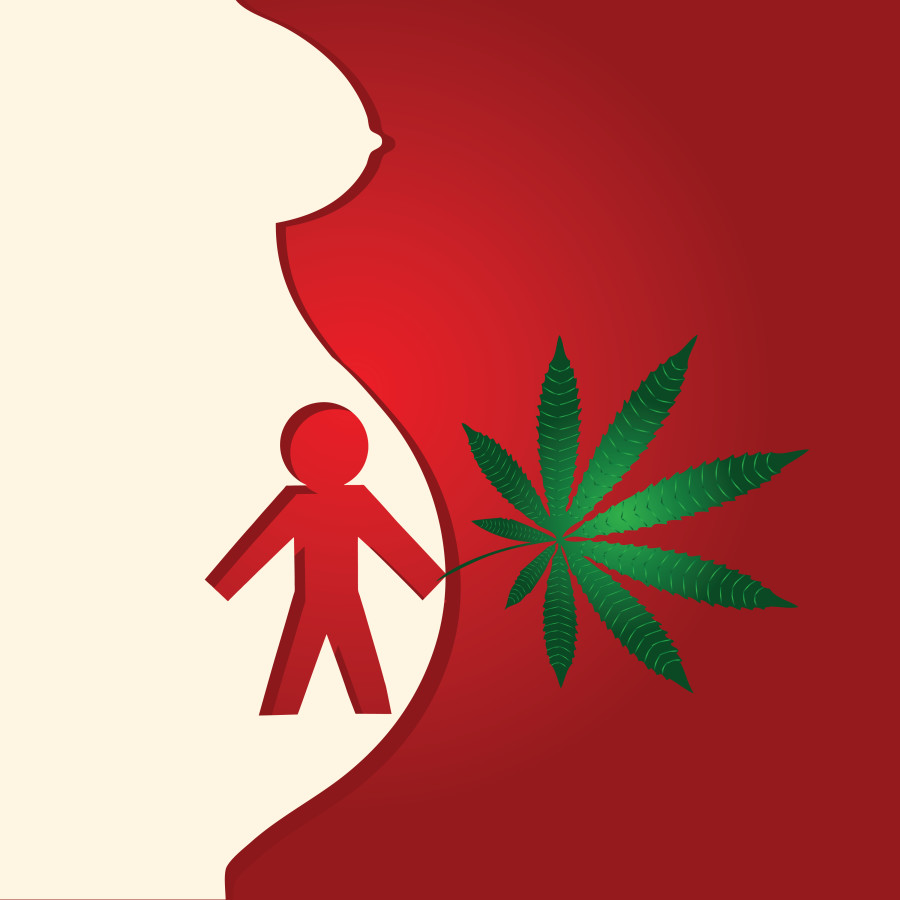I was surprised when my daughter told me about a friend who smoked marijuana during pregnancy. I shouldn’t have been. Turns out marijuana is the most commonly used recreational drug during pregnancy. With more states legalizing marijuana for medical and recreational use, many pregnant women may not see any danger.
For would-be moms who want to justify marijuana use, it is not hard to find support on the internet. I easily found a website that cites a study done in Jamaica in 1994. The results suggest that not only is marijuana safe, your baby might be more socially engaging and make better eye contact. Seriously?
Want more surprises? According to American Congress of Obstetricians and Gynecologists (ACOG):
- Self-reported marijuana use in pregnancy ranges from two to five percent across America.
- In low-income, urban areas that number may approach 28 percent.
- Up to 60 percent of women who are using marijuana when they become pregnant, continue to use it right through pregnancy.
It’s About the Brain
Part of the problem is an absence of hard evidence against marijuana. Nobody is going to do a controlled study giving marijuana to pregnant women. Retrospective studies are of some value but are confusing because many women who use marijuana also use other drugs or smoke cigarettes. So how do you tease out the effects of marijuana?
Supporters of marijuana frequently point to studies showing normal birth weight or no increased risk of birth defects. But that is not the danger. It’s your baby’s developing brain. We have studies showing that children of mothers who used marijuana during pregnancy test lower on problem solving, visual, and motor skills. That’s not surprising. Anybody who has smoked a few joints knows that marijuana changes the way your brain works.
THC and Brain Cells Are Bad Company
One way to avoid the drawbacks of a controlled trial and the confusion of a retrospective study is to go to the source, developing brain cells. That’s what researchers did in a 2014 study published in the European Molecular Biology Organization (EMBO) Journal. The researchers looked at the reaction of human and animal fetal brain tissue when exposed to the active ingredient of marijuana (THC). The results were not pretty:
- THC clearly caused defective development of brain cells in the cerebral cortex (the thinking part of the brain).
- THC decreased the ability of brain cells to communicate with each other.
- The researchers cautioned that even minute changes at this stage of development could result in life-long deficits and increase the risk for nervous system and psychiatric problems in later life.
In a 2015 policy statement, based on the most up-to-date studies available, ACOG says:
- Women who use marijuana before pregnancy should be advised to stop if they are planning to become pregnant or do become pregnant.
- There is no legitimate or approved indication for medical marijuana during pregnancy.
- There is no evidence to say the marijuana is safe during breast feeding.
The bottom line is that marijuana is far from safe during pregnancy. Do not be misled by old studies on marijuana support websites. When it comes to your baby’s brain, go with the best research available. Same thing goes for breast feeding. Research shows that THC can pass through breast milk in significant amounts.3 With what we know about THC and the developing brain, why take a chance? Why even think about it?
Share your thoughts on the matter in the comments section below.

